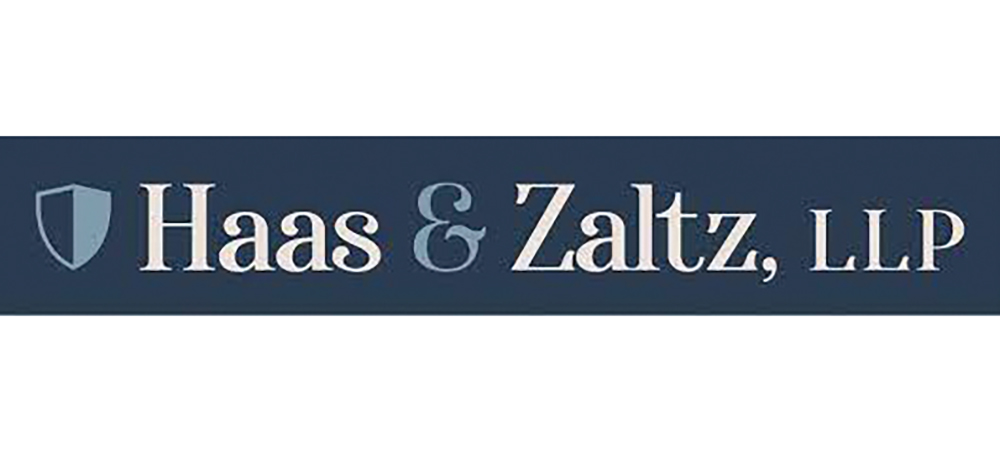
(Courtesy of Haas & Zaltz) Estate Planning offers a practical and easy way to show your loved ones that you care.
Simply put, an Estate Plan serves as a set of instructions regarding how you want your assets to pass, to whom you want them to pass, and when you want them to pass. The plan sends a message to your loved ones that you care enough to leave your affairs in order and protect them. A basic Estate Plan consists of documents that provide instructions for what happens both during your life and at death. Those documents consist of a Living Trust, also known as a Revocable Trust (a “Trust”), a Will, a Property Power of Attorney, a Healthcare Power of Attorney, a Living Will, and a Health Insurance Portability and Accountability Act (“HIPAA”) Authorization.
Although we list the Trust first because it serves as the foundation for many Estate Plans, let us examine the Will first. Usually, a Will dictates distribution of your assets upon your death. In the Will, an individual nominates an executor or personal representative to liaise with the probate court, collect the decedent’s assets, pay the decedent’s debts, expenses and taxes, and make disbursements of the remaining assets to the decedent’s beneficiaries. If the decedent had minor children at death, then a court would look to the Will for the individual nominated to serve as guardian of those children. If someone dies without a Will, then the state of that person’s residence has a set of laws, called “intestacy statutes” that govern the dispersal of that individual’s assets at death. The state’s distribution pattern fails to account for any beneficiary’s circumstances and usually diverges significantly from what the decedent would have wanted had they executed a Will. State intestacy laws may appoint a stranger as administrator or executor to handle these important tasks.
As noted above, the individual handling an estate needs to liaise with the court to transact the business of the estate. These tasks include selling real estate, paying attorney’s fees or resolving a claim against the estate, some of which require prior court approval. Depending upon the laws of the domiciliary state, courts may not limit who can access these proceedings. Further, most states require engaging an attorney to complete the process, which can take several months or longer. Additionally, the family needs to spend funds to pay any court fees along with attorney fees.
For those desiring to avoid the foregoing, a Trust does that. A Trust serves as a Will substitute, maintains the decedent’s privacy, requires little or no court oversight, and provides significant flexibility. With a Trust, you transfer the assets to the Trust during your lifetime and manage them as the trustee. You avoid probate altogether because the Trust vests a successor Trustee with the power to make distributions upon your death without court oversight. Here, you demonstrate your love and concern by implementing a strategy designed to save your loved ones time and money, maintain their privacy, and leave a lasting legacy. The Trust also protects against incapacity by giving a successor trustee the power to make distributions from the Trust for your benefit in the event of your incapacity. Due to cases of fraud, institutions more readily recognize a successor trustee than an agent under a Property Power of Attorney.
The Property Power of Attorney allows the individual signing the document (the “Principal”) to appoint an “Agent” to act on their behalf concerning their financial affairs. The Property Power of Attorney allows the Principal to appoint one or more successor Agents to serve if the original Agent fails or ceases to act. The Property Power of Attorney gives the Agent the powers inherent to the Principal. The Property Power may give the Agent immediate power to make these decisions, even if the Principal is not incapacitated when the Agent is making the decision. Most states also give the Principal the option to make the Property Power of Attorney “springing,” meaning that the Agent’s powers “spring” into action only upon incapacity of the Principal. If anyone refers to the Property Power of Attorney as “durable” that means the Property Power of Attorney continues to be effective notwithstanding the Principal’s incapacity. Any Property Power of Attorney that is not durable prohibits the Agent from acting during the Principal’s incapacity.
A Healthcare Power of Attorney allows you to appoint an Agent to make medical decisions on your behalf if you are unable to make those decisions for yourself. If you can make these decisions, then your Agent cannot veto any medical decision you make. A Living Will, sometimes called an “Advance Directive,” expresses your wishes regarding end-of-life decisions. Without this document memorializing your wishes, doctors and medical professionals must keep you alive even if you have no reasonable chance of recovery notwithstanding that doing so only prolongs your suffering.
Often the Living Will and Healthcare Power of Attorney are combined into one document. The Health Insurance Portability and Accountability Act of 1996 mandates that healthcare providers keep their patients’ protected healthcare information confidential. While most of us would agree that generally makes sense, sometimes you want others to have access to that information, especially the fiduciaries that you have nominated to act upon your incapacity. A HIPAA Authorization allows you to appoint one or more individuals to access or receive protected health information.
As this article demonstrates, creating an Estate Plan shows your loved ones how much you care. Thinking about the peace of mind that these documents provide gives me goosebumps. Consider the ultimate act of love and create or update your estate plan. If you already have a plan, review the documents to ensure that the individuals nominated as fiduciaries remain capable to serve in these roles. An Estate Plan provides comfort and peace of mind for both you and your loved ones.
To learn how to protect you and your family visit www.haaszaltz.com or call 845-425-3900. You can also email them at info@haaszaltz.com.









